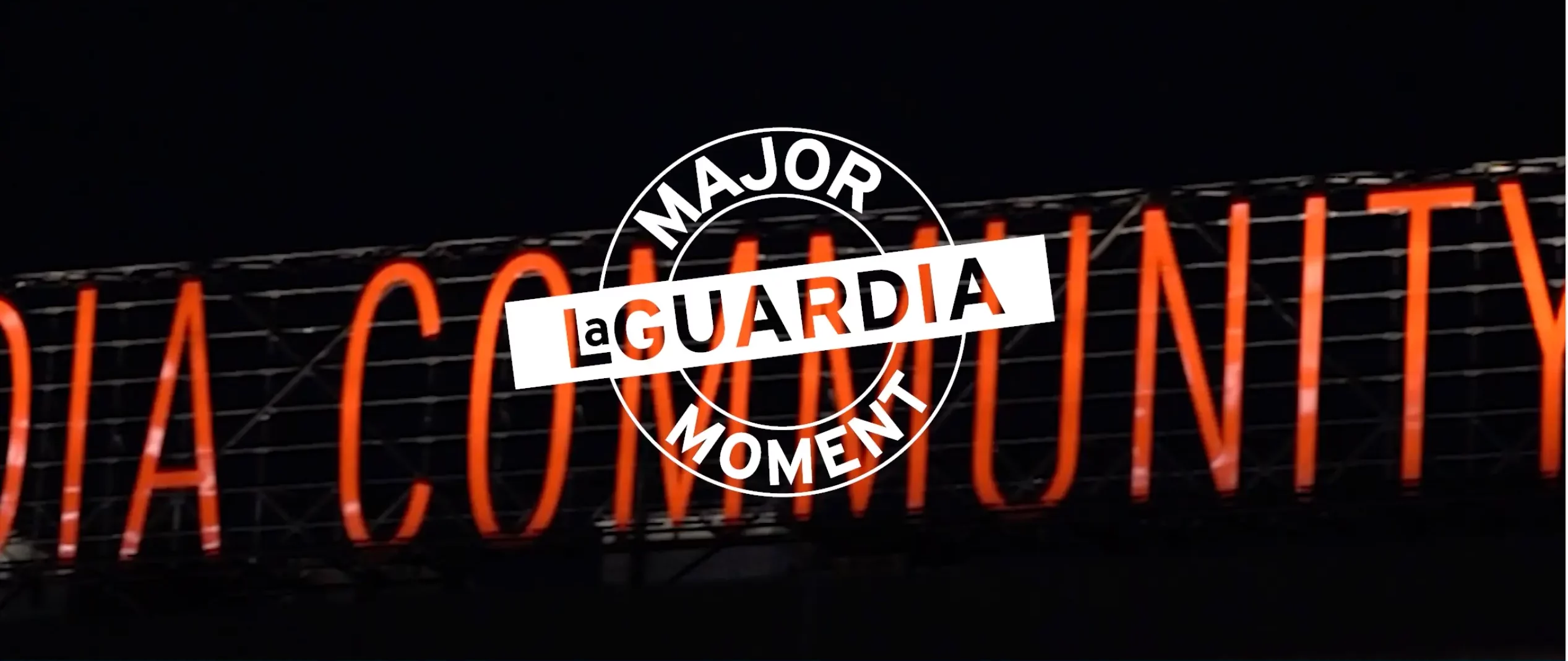Room: C-Building, C-745
Phone: (718) 482-5690
About
The Film and Television program introduces students to the arts, crafts, and skills of film and television production, including screenwriting, cinematography, editing, computer graphics, and effects. Students will learn about the history of film and mass media, and how the Internet, mobile media, and social networks have transformed the entertainment industry. Students will also analyze films by great directors for the lessons they offer in the expressive arts of cinema: storytelling, composition, lighting, editing, and special effects.
Field trips, visits from entertainment and media industry professionals, and internships are designed to take advantage of LaGuardia’s prime location in a leading center of film, television and video production.
*For a list of approved courses, go to: www.laguardia.edu/Pathways
A. REQUIRED CORE: 12 CREDITS
English: 6 credits
Mathematics and Quantitative Reasoning: 3 credits*
Life and Physical Sciences: 3 credits*
B. FLEXIBLE CORE: 18 Credits
Select one course from each of the five flexible core categories AND one additional course from any flexible core category.
Students are required to select one Urban Study course to complete college requirement. To complete the degree requirements from the Flexible Core, students are advised to select courses from the recommended course selections listed on the program website. Note: Students can select only two courses from any one discipline.
| Courses | Credits |
|---|---|
| Liberal Arts: 3 Credits | |
| LIF101 First Year Seminar for Liberal Arts Social Science and Humanities | 3 |
| English: 3 Credits | |
| ENG103 Preparing and Writing the Research Paper | 3 |
| Film and Television: 12 Credits | |
| HUV150 Art of Film | 3 |
| HUV238 Screenwriting | 3 |
| HUV240 Video Production Workshop I | 3 |
| HUV270 American Film | 3 |
| Select two of the following: 6 Credits | |
| HUN196 Film and New York City | |
| HUV151 Television Studies | |
| HUV241 Video Production Workshop II | |
| HUV242 Postproduction: Effects, Color, Audio | |
| HUV243 Television Production Workshop (Note: Permission of program director required) | |
| HUV244 Experiential Learning for Film and Television | |
| Social Science: 6 Credits | |
| Select one of the following: | |
| SSA100 Introduction to Anthropology | |
| SSA101 Cultural Anthropology | |
| SSE103 Introduction to Microeconomics | |
| SSE104 Introduction to Macroeconomics | |
| SSP101 U.S. Power and Politics | |
| SSP250 Political Ideas and Ideologies | |
| SSS100 Introduction to Sociology | |
| SSY101 General Psychology | |
| Select one of the following: | |
| SSH101 Themes in American History to 1865 | |
| SSH102 Themes in American History since 1865 | |
| SSH103 Western Civilization from Ancient Times to the Renaissance | |
| SSH104 Western Civilization from the Renaissance to Modern Times | |
| SSH105 World History from Ancient Times to 1500 | |
| SSH106 World History from 1500 to the Present | |
| SSH110 East Asia Civilization and Societies | |
| SSH231 Afro-American History | |
| SSH232 Survey of Latin American and Caribbean History | |
| SSP220 Politics of Latin America and the Caribbean |

Career Possibilities
The Film and Television Program at LaGuardia Community College encourages students to transfer to a four-year college upon graduation. While this is not necessary to begin a career in the film and entertainment industry, moving on to a BA or BFA will enhance and develop the arts, crafts, and skills required for working in the film and television industry.
The Film and Television Program recognizes that many students begin their education with a goal of becoming a director or screenwriter. While this may be possible, the program encourages its majors to also explore some of the many other job opportunities that exist in the world of entertainment media.
When setting career goals, it’s good to keep in mind that there are many rewarding careers outside the major motion picture and broadcast industries. Graduates with media degrees have found jobs in educational institutions and corporations. There are secure careers in the legal and government sectors for producers, videographers, and individuals trained in digital asset management. Video for the Web, social media, and other digital media offer many and varied types of career opportunities.
The Film and Television Program takes advantage of its location in New York City by providing classroom visits by working professionals, field trips, and internship opportunities.
Transfer Possibilities
Are You Interested In...
Skills You Will Learn
What makes this major unique?
Students practice the crafts of writing and directing through classroom training and creative workshops. Students collaborate on developing and producing several short video projects in program courses.
Our Film and Television Program also provides courses in film history, theory, criticism, and aesthetics as a crucial foundation for aspiring filmmakers. Another course focuses on New York City as a major center of media production.
Graduate in Two Years!
Review your Degree Map to stay on track.
Contact Us
Quicklinks
Follow Us